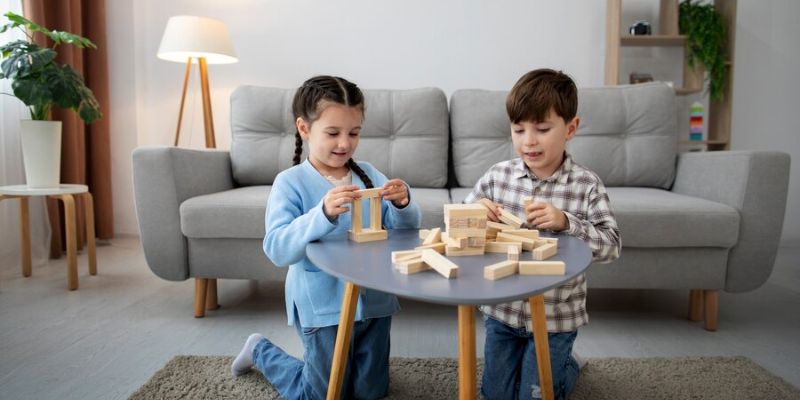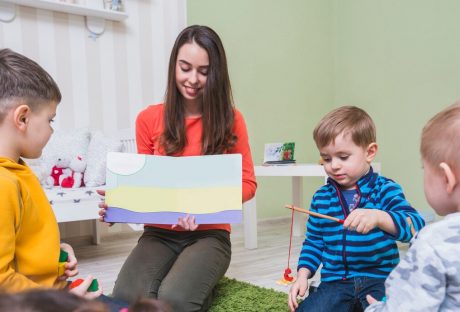Opening up your home to a foster child can be a deeply fulfilling way to make a difference in a young person’s life. However, welcoming a child from a difficult background also requires thoughtfulness and understanding. Foster children have frequently endured upheaval and distress. Providing real stability and comfort demands sensitivity, perseverance, and devotion. Here are some tips to help make the transition smoother for everyone.
Ways To Create A Welcoming & Safe Environment For Fostering Children
There are several ways you can adopt to create a safe environment for fostering children. You must be well aware of it while reaching your objectives with ease. Ensure that you know the process from your end while meeting your needs with ease.
1. Meet Basic Needs
Before focusing on higher needs, make sure your foster child’s basic physical and emotional needs are met. Have their bedroom fully furnished and decorated to their age and tastes. Stock up on any preferred foods and toiletries. Find out their clothing size and provide weather-appropriate options. You can use your fostering allowance for this. Verbally reassure them that they are welcome, wanted and will be well taken care of. Consistency, routine and nurture help provide a sense of safety.
2. Allow Time To Adjust
Moving into a foster home is a major life change. Don’t expect your foster child to immediately feel at home and bonded with you. Comfort levels and trust develop gradually. Avoid overloading them right away with new places, people and activities. Provide downtime to settle in. Let them dictate the pace of building relationships, not vice versa. Respect their personal space. Patience and small gestures like smiles go a long way in making children feel accepted.
3. Create Rituals And Traditions
Routines help provide stability and familiarity. Establish daily rituals like a welcoming hello/goodbye, bedtime stories, or mealtime check-ins. Plan weekly activities to look forward to, like pizza Fridays, bike rides, or volunteering at an animal shelter. Monthly traditions might include baking favourite treats, watching movies, or visiting parks. Ask for input on what rituals or traditions they might enjoy. Foster children crave consistency and participation.
Read Also: Is it Possible for Single Individuals to Become Foster Parents?
4. Display Their Identity
To help foster children claim their space, decorate their room and common areas with their own artwork, photos, collections and personal touches that affirm their identity and interests. Set aside areas where they can keep sentimental objects from their past life safely stored but accessible. Ensure they have enough secure storage space. Visual reminders of who they are help instil belonging.
5. Promote Open Communication
Creating psychological safety hinges on open communication free of judgment. From the start, establish the ground rule that all feelings are welcome to be shared without fear of negative reaction. Actively listen with empathy when youth express difficult emotions from past experiences. Avoid insisting on eye contact. Provide multiple outlets like talking, writing and art for processing feelings. Work through tension calmly with “I” statements and apology/forgiveness.
6. Respect Privacy And Autonomy
To build trust, respect a young person’s need for privacy and autonomy over their personal domain. Knock before entering their bedroom and bathroom. Avoid invasive questioning. Let them choose when to share information about their past or thoughts. Support healthy independence appropriate to their age in decision-making over aspects like clothes, hairstyles, hobbies, and friendships. Upholding dignity helps foster children feel valued and understood.
7. Advocate And Empower
As a foster carer, advocate for your foster child’s needs at school, in health care, and within service systems. Speak up respectfully to address any bullying, discrimination, or mistreatment they may experience. Promote their strengths and growth rather than focusing narrowly on deficits or diagnoses. Encourage the development of self-care skills, problem-solving, and leadership opportunities that empower them. Instilling self-worth is key to emotional security.
Overall, making foster youth feel truly welcome and safe stems from unconditional care and patient guidance at their pace. With empathy, consistency and respect, you can help provide stability and a renewed sense of belonging. The rewarding connections built will enrich your whole family’s life.
Benefits Of Creating A Safe Environment For Children In Society
There are several benefits to creating a safe environment for children. You must be well aware of it while reaching your goals with ease. Ensure that you follow the right process from your end while meeting your goals with ease.
1. Optimal Development
A safe environment allows children to thrive physically, socially, and emotionally. You need to be well aware of the facts that can assist you in reaching your goals with complete ease. Ensure that you maintain the process of optimal development for your child.
This fosters healthy brain development and helps you to maintain the complete development process for your child. It can make things easier for you to reach your objectives with ease. Keep the process in perfect order.
2. Improved Mental Health
Feeling safe and secure can help you to relieve the stress and anxiety of the children to a considerable extent. You must be well aware of it while reaching your goals with complete ease. Additionally, it can boost your mental health to a considerable extent.
To foster steady mental growth in your children, the upbringing of the children must be in a safer environment. This can boost the chances of your child’s overall development. Keep things in proper order.
3. Stronger Social Bonds
In a safe environment, children can maintain stronger social bonds with the concerned people. You need to be well aware of it while reaching your goals with complete ease. Keep the process intact while attaining your objectives with ease.
Empathy, cooperation, and social skills can help your business to grow at a faster pace. This can boost the chances of your brand value at a faster rate. You should not make your selection and choices on the incorrect end. Furthermore, this can boost the scope of your mental motivation.
4. Reduced Risk-Taking Behavior
Reduced risk-taking behavior can result in a fall for creating a safe environment for your children. You need to be well aware of it while reaching your goals with complete ease. Ensure that you should develop risk-taking behavior.
It can reduce the chances of accidents, injuries, and involvement in crime. You must not make your selection and choices on the incorrect end. Keep the process in the perfect order while you want to reach your goals.
5. Enhanced Learning
Children who feel safe and secure are more receptive to learning. The best thing about them is they can adapt to any situation quite quickly. They are better able to focus in school, participate actively, and reach their full academic potential.
You must not be able to make your selection and choices on the incorrect end. This will make things too complex for your counterpart. Additionally, these can make things work in perfect order while reaching your goals with ease.
Final Take Away
Hence, these are some of the crucial facts that you should be well aware of while reaching your objectives with complete ease. Keep the process in perfect order while meeting your goals with absolute ease.
Share your opinions with us while reaching your objectives with complete ease. Ensure that you make things work in perfect order.
Read Also:
- Why are More People Heading to Online Colleges?
- Here Are 10 Tips On How To Get Motivated For Work, School, or Life
- 7 Reasons Why Online Education is Very Popular

























